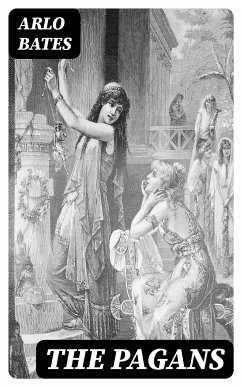
Emmeline, the Orphan of the Castle (eBook, ePUB)
Versandkostenfrei!
Sofort per Download lieferbar
1,99 €
inkl. MwSt.
Weitere Ausgaben:

PAYBACK Punkte
0 °P sammeln!
In "Emmeline, the Orphan of the Castle," Charlotte Smith masterfully weaves a tale of melancholy and resilience, set against the backdrop of the English Gothic landscape. The narrative follows the life of Emmeline, whose journey navigates themes of loss, abandonment, and the quest for identity, echoing the emotional depth characteristic of Smith's poetic prose. The novel employs a rich, descriptive style, blending romance with elements of suspense, typical of the late 18th-century Gothic novels, while also critiquing societal norms surrounding gender and estate inheritance during a rapidly cha...
In "Emmeline, the Orphan of the Castle," Charlotte Smith masterfully weaves a tale of melancholy and resilience, set against the backdrop of the English Gothic landscape. The narrative follows the life of Emmeline, whose journey navigates themes of loss, abandonment, and the quest for identity, echoing the emotional depth characteristic of Smith's poetic prose. The novel employs a rich, descriptive style, blending romance with elements of suspense, typical of the late 18th-century Gothic novels, while also critiquing societal norms surrounding gender and estate inheritance during a rapidly changing political era. Charlotte Smith, a pioneering figure in English literature, was a poet and novelist who experienced personal hardships that deeply influenced her writing. Raised in a declining estate and familiar with the struggles of women in her time, Smith's own life as a mother and her struggles with financial instability inform the poignant narrative of "Emmeline." Moreover, her innovative use of the epistolary form and vivid imagery demonstrates her engagement with Romantic ideals and her desire to illustrate the complexities of human emotion. Readers seeking a thought-provoking exploration of the intersections between personal tragedy and societal constraints will find "Emmeline, the Orphan of the Castle" both enlightening and evocative. This novel not only enriches the Gothic literary canon but also invites reflection on the universal themes of love, loss, and the search for belonging.
Dieser Download kann aus rechtlichen Gründen nur mit Rechnungsadresse in A, B, BG, CY, CZ, D, DK, EW, E, FIN, F, GR, H, IRL, I, LT, L, LR, M, NL, PL, P, R, S, SLO, SK ausgeliefert werden.













